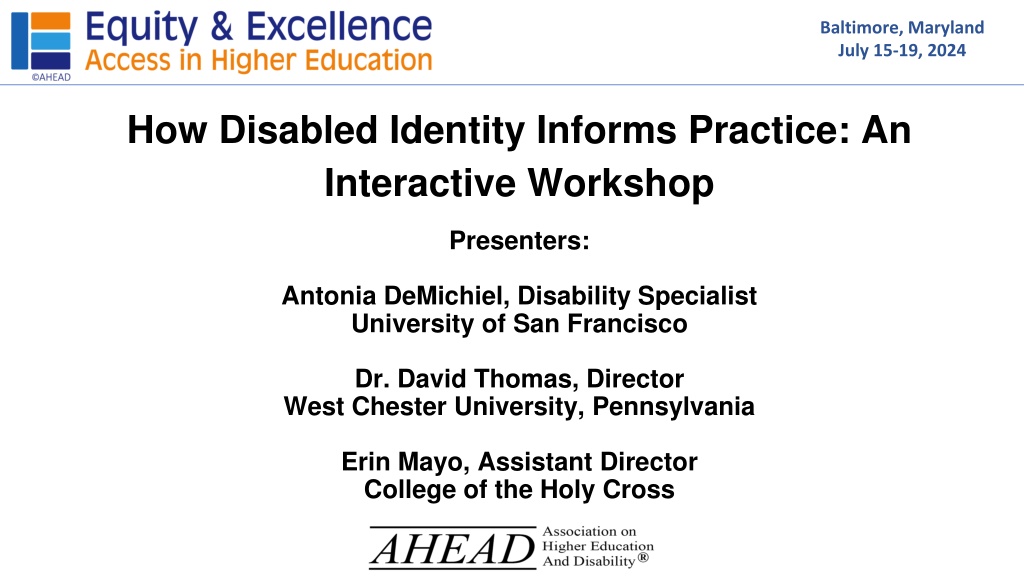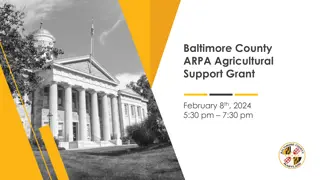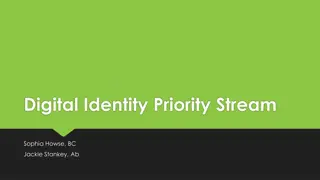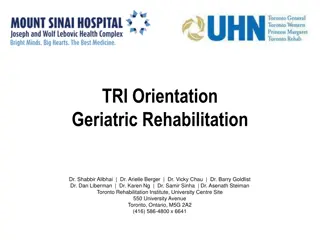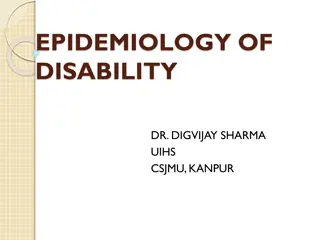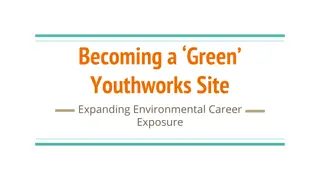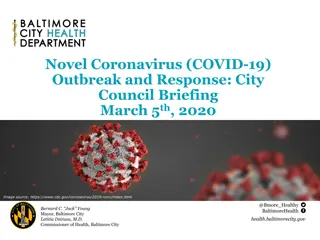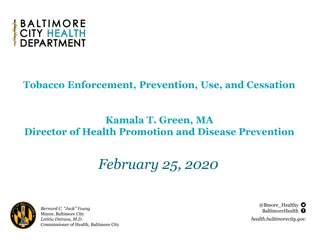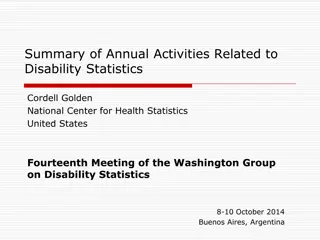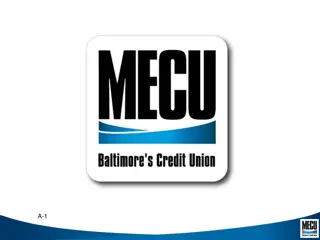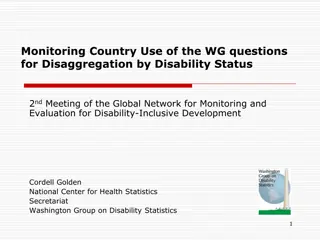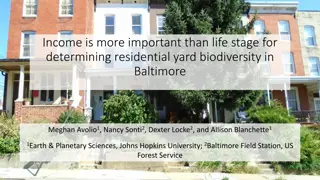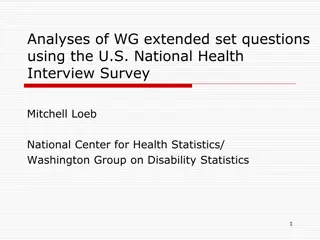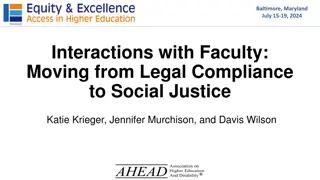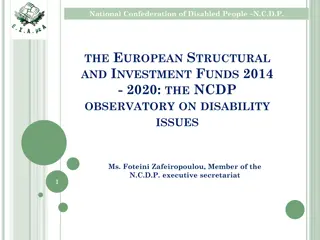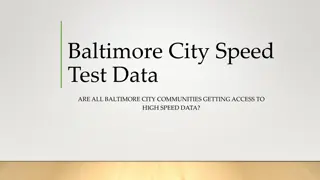Disability Identity Workshop in Baltimore
Interactive workshop in Baltimore, Maryland exploring how disabled identity informs practice, led by expert presenters emphasizing inclusivity and respect. Workshop includes framing, key concepts, theory-practice connection, and reflection spaces.
Download Presentation

Please find below an Image/Link to download the presentation.
The content on the website is provided AS IS for your information and personal use only. It may not be sold, licensed, or shared on other websites without obtaining consent from the author.If you encounter any issues during the download, it is possible that the publisher has removed the file from their server.
You are allowed to download the files provided on this website for personal or commercial use, subject to the condition that they are used lawfully. All files are the property of their respective owners.
The content on the website is provided AS IS for your information and personal use only. It may not be sold, licensed, or shared on other websites without obtaining consent from the author.
E N D
Presentation Transcript
Baltimore, Maryland July 15-19, 2024 How Disabled Identity Informs Practice: An Interactive Workshop Presenters: Antonia DeMichiel, Disability Specialist University of San Francisco Dr. David Thomas, Director West Chester University, Pennsylvania Erin Mayo, Assistant Director College of the Holy Cross
Baltimore, Maryland July 15-19, 2024 Conference Civility Statement We ask you to join us in creating a culture that reflects Access and Inclusion and Civility and Respect this week and in all aspects of our organization.
Baltimore, Maryland July 15-19, 2024 Land Acknowledgement We acknowledge that this year s conference takes place on the traditional, contemporary, and unceded homelands of indigenous peoples including the lands of the Piscataway and Susquehannock peoples. We recognize the enduring presence of more than 7,000 indigenous peoples in Baltimore City, including the Piscataway, Lumbee, and Eastern Band of Cherokee community members. As we gather from places across the country and globe, we honor and recognize the indigenous people of our homelands.
Baltimore, Maryland July 15-19, 2024 Session Roadmap 1. Framing and positionality 2. Key Concepts 3. Connecting Theory to Practice 4. Closing
Baltimore, Maryland July 15-19, 2024 Framing and Positionality This is a participatory workshop, not a lecture-style session. We hope you ll take what we discuss and think about how you can apply it on your own campus. As presenters, we acknowledge our framing is heavily influenced by our other identity markers. All three of us are White and cisgender so this inherently shapes our discussion of this topic in ways that we know are limited. We also hold the reality that each person here has different experiences with exploring disability identity. Our main intention is to listen and learn together.
Baltimore, Maryland July 15-19, 2024 Guiding Thought There is a significant emphasis on HOW to do the work of a Disability Services professional; however, not as much attention or value is placed on offering reflection and knowledge sharing spaces that center the importance of the lived experience of disabled practitioners. Pair Share: What motivated you to come to this session? Why does this topic matter to you?
Baltimore, Maryland July 15-19, 2024 Group Discussion Norms All discussion is welcome. This is an interactive workshop. Take space, make space. Notice and acknowledge the power dynamics in the room. Speak one at a time with an ear to listening rather than responding. Wait for the microphone before speaking to ensure everyone is able to access the conversation. Don t be afraid of using the wrong language; it s most important to engage in authentic dialogue. Acknowledge and respect each other and the validity of your varied experiences.
Baltimore, Maryland July 15-19, 2024 Section 2: Key Concepts Overview of models of disability Disability as diversity Emotional/intellectual labor of disabled staff Fostering Institutional Commitment: What works and what gets in the way? Individual or small group reflection #1
Baltimore, Maryland July 15-19, 2024 Models of Disability Medical Model Social Model Rooted in ableism correction of deviation is desirable and necessary. Disability is diagnosis Looks at what is wrong and attempts to treat or cure Creates low expectations of independence, dignity, and agency. Grew out of the Disability Rights Movement and emphasizes equality and equity. Impairment and disability Disability is an aspect of diversity and identity. Disabled by social systems, norms, built and physical environments Emphasizes barriers to access
Baltimore, Maryland July 15-19, 2024 Disability as Diversity The recently updated AHEAD Professional Competencies encourage professionals to prioritize principles of equity, inclusion and disability justice through individual work and seeking out opportunities to apply these principles (Gerard, Hall and Scruggs 2023)
Baltimore, Maryland July 15-19, 2024 Small group reflection #1 Disability is often left out of the diversity, equity and inclusion conversation. Why do you think that this is the case?
Baltimore, Maryland July 15-19, 2024 Understanding the emotional and intellectual labor of disabled staff As disabled practitioners, we do a lot of un/underrecognized and unacknowledged emotional labor in our practice and that is hard and draining.
Baltimore, Maryland July 15-19, 2024 Fostering Institutional Commitment: What works and what gets in the way? Silos and Isolation Stigma and Erasure Cost of Commitment
Baltimore, Maryland July 15-19, 2024 Check-in
Baltimore, Maryland July 15-19, 2024 Section 3: Connecting Theory to Practice We will now move into using the worksheet for both individual and group reflection. Feel free to work on it on your own or with your neighbors, whatever is most accessible for you!
Baltimore, Maryland July 15-19, 2024 Action Plan Example STAKEHOLDERS ONE NEXT STEP ISSUE SDS LEADERSHIP (solicit for money) Define a budget and lock in dates Students were telling our staff there is not enough disability- focused programming on campus Events Management (booking spaces, catering, some marketing help) Student leadership, diversity office, faculty superstars
Baltimore, Maryland July 15-19, 2024 Section 4: Closing Review key takeaways Resources for further learning Final Q&A
Baltimore, Maryland July 15-19, 2024 Key Takeaways
Baltimore, Maryland July 15-19, 2024 Resources for Further Learning Please refer to the conference resources section on the AHEAD website for a curated list of books, podcasts and websites to continue your learning!
Baltimore, Maryland July 15-19, 2024 Presenter Information Antonia DeMichiel | University of San Francisco | San Francisco, CA antoniad@usfca.edu Erin Mayo | College of the Holy Cross | Worcester, MA emayo@holycross.edu Dr. David Thomas | West Chester University | West Chester, PA dthomas3@wcupa.edu
Baltimore, Maryland July 15-19, 2024 Thank you for attending!
